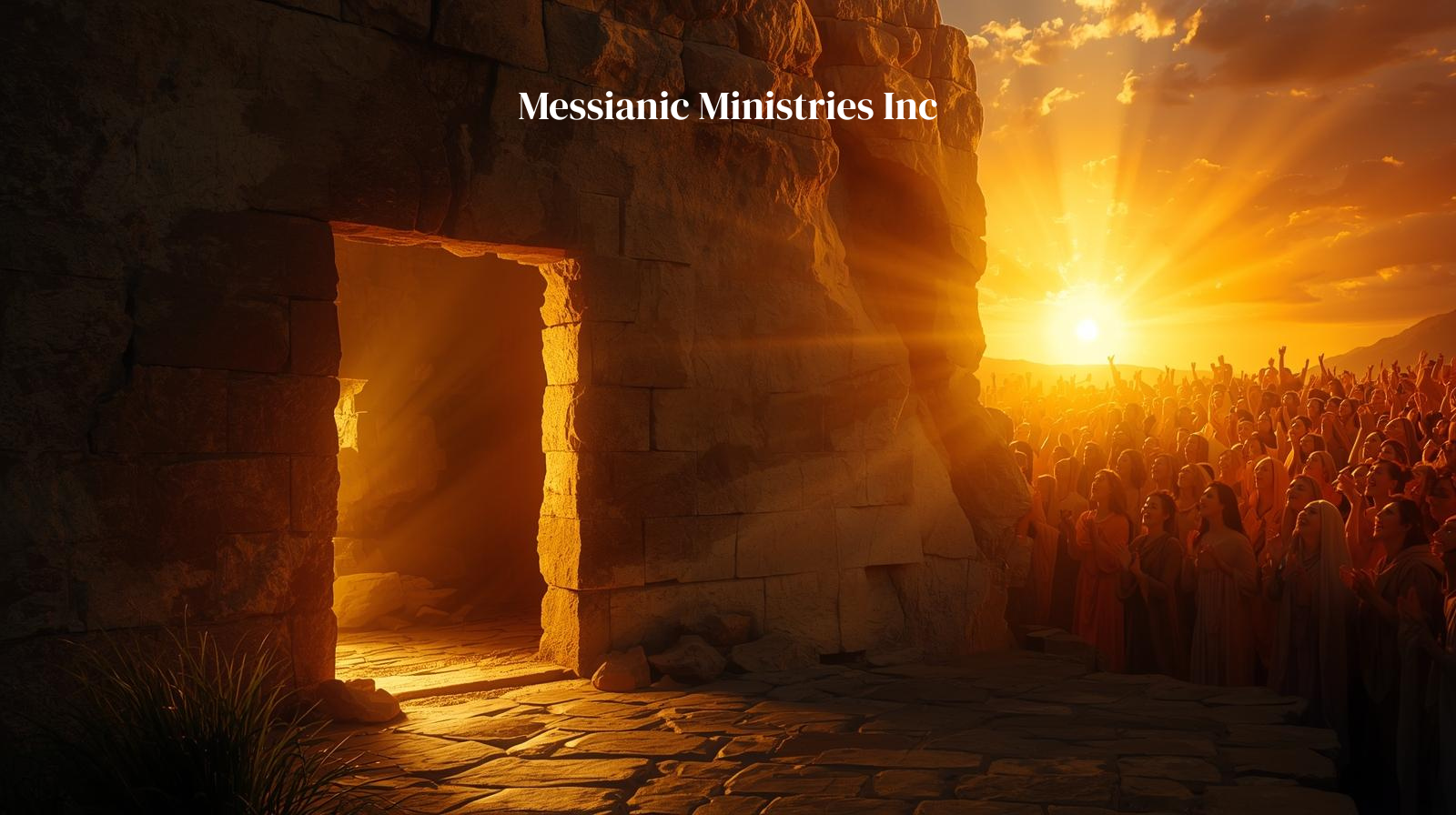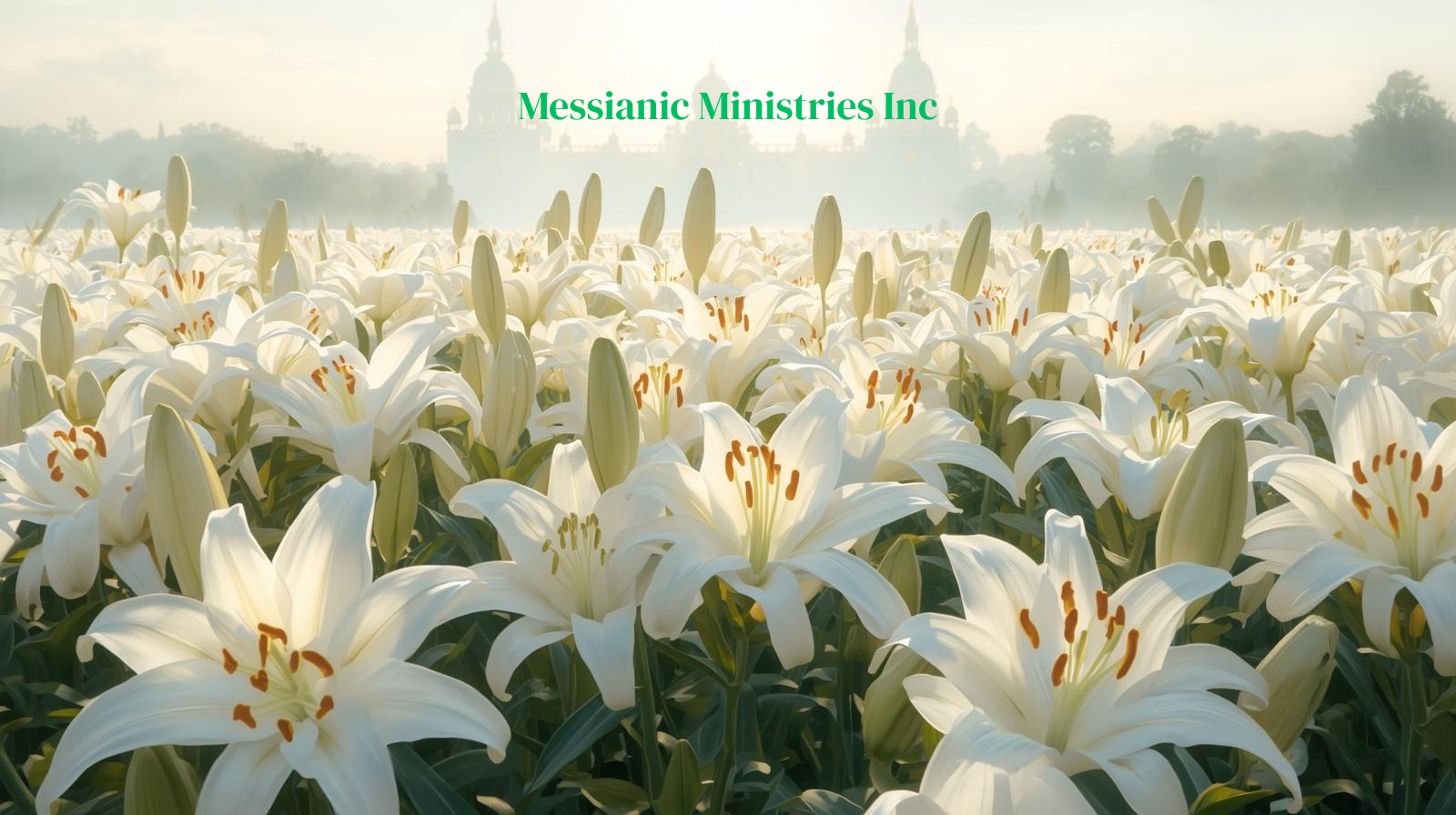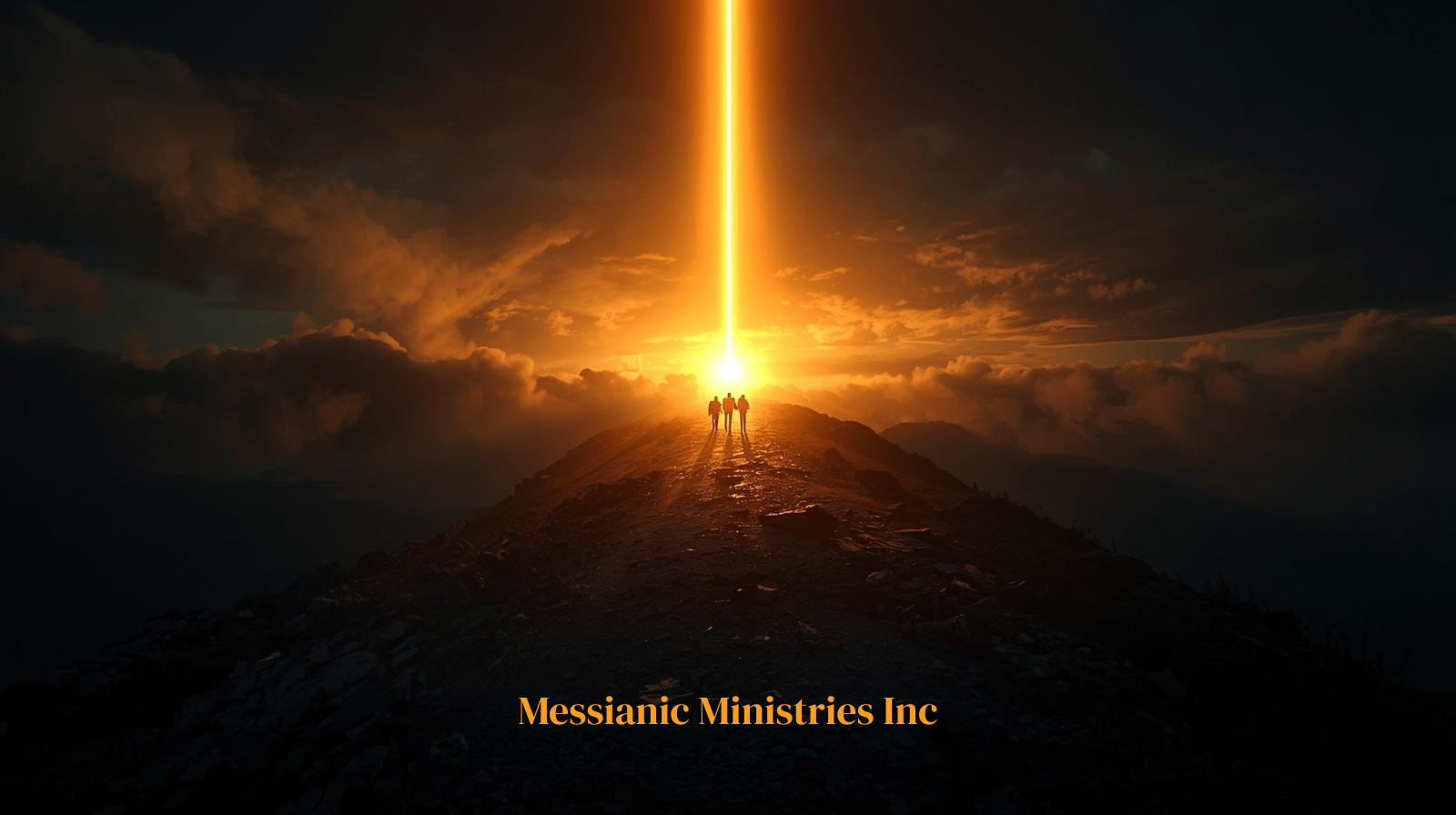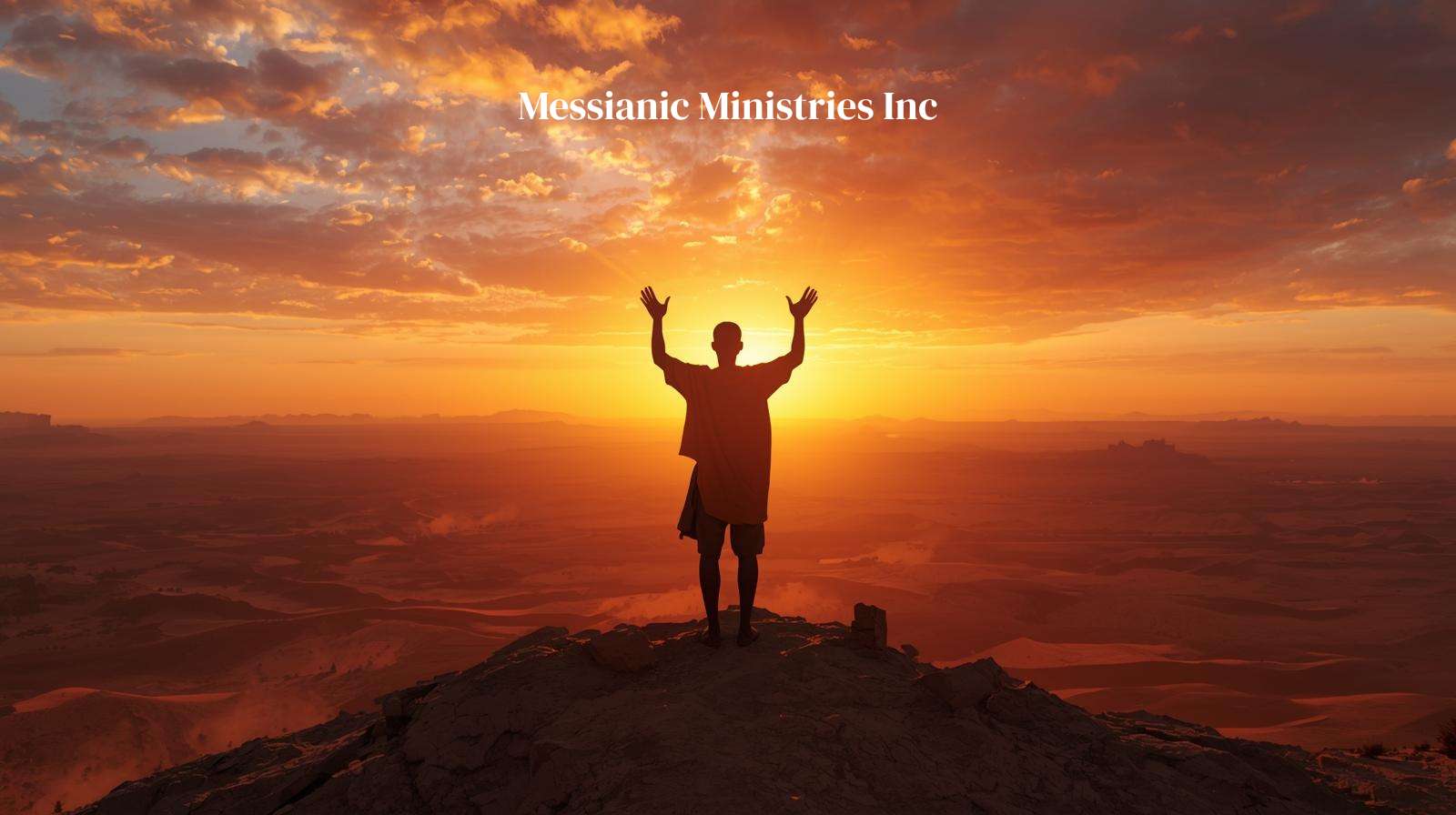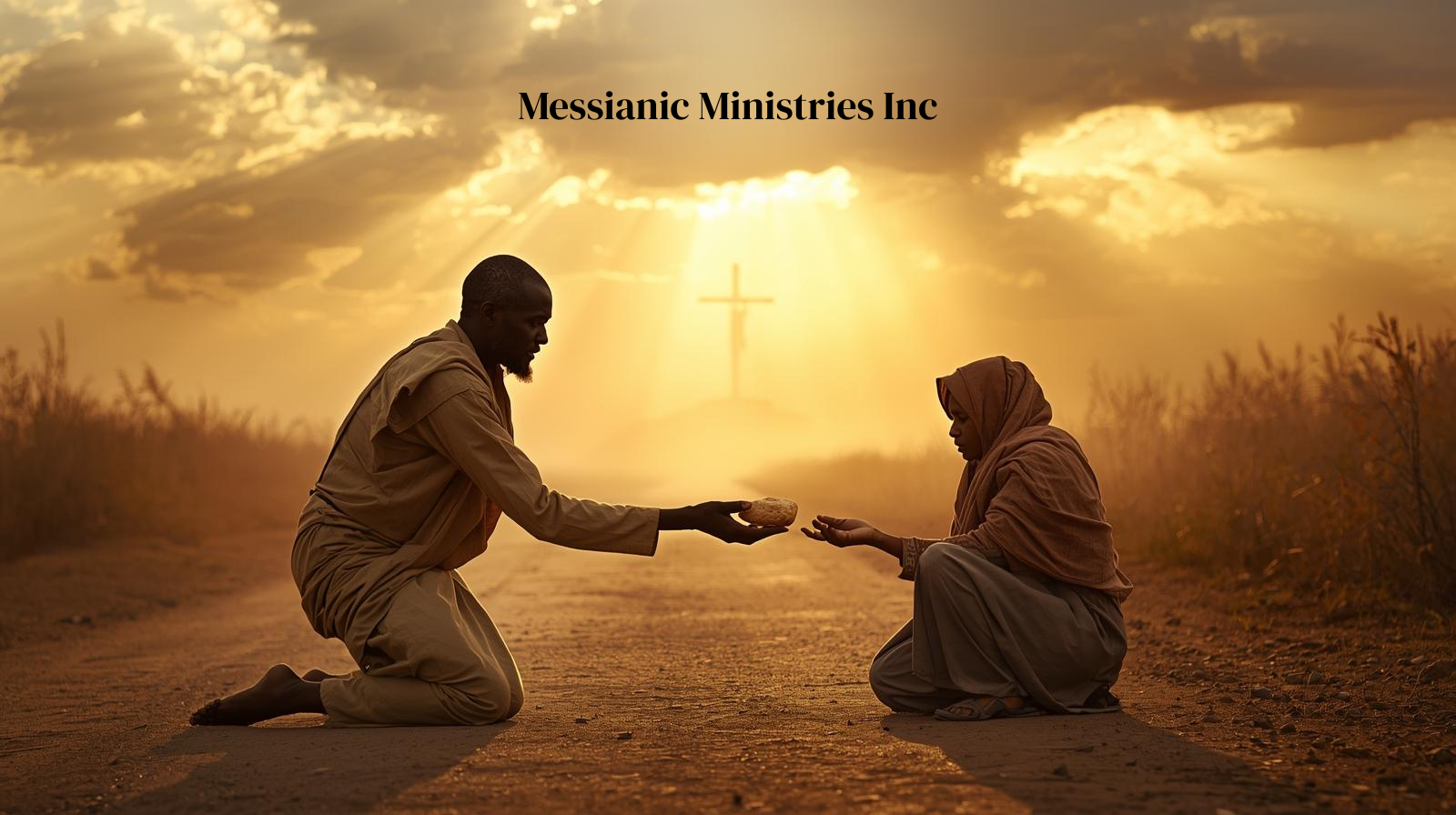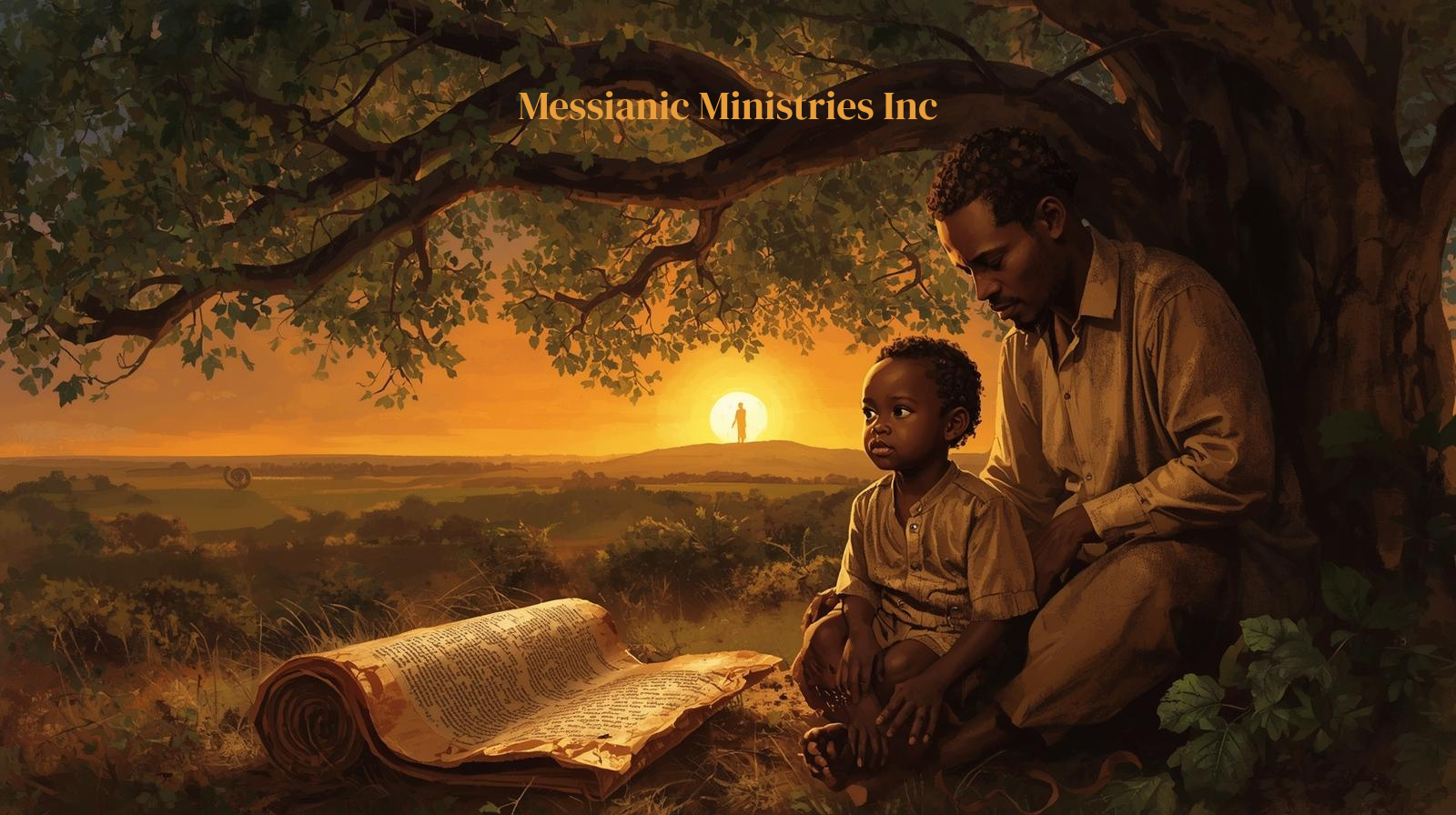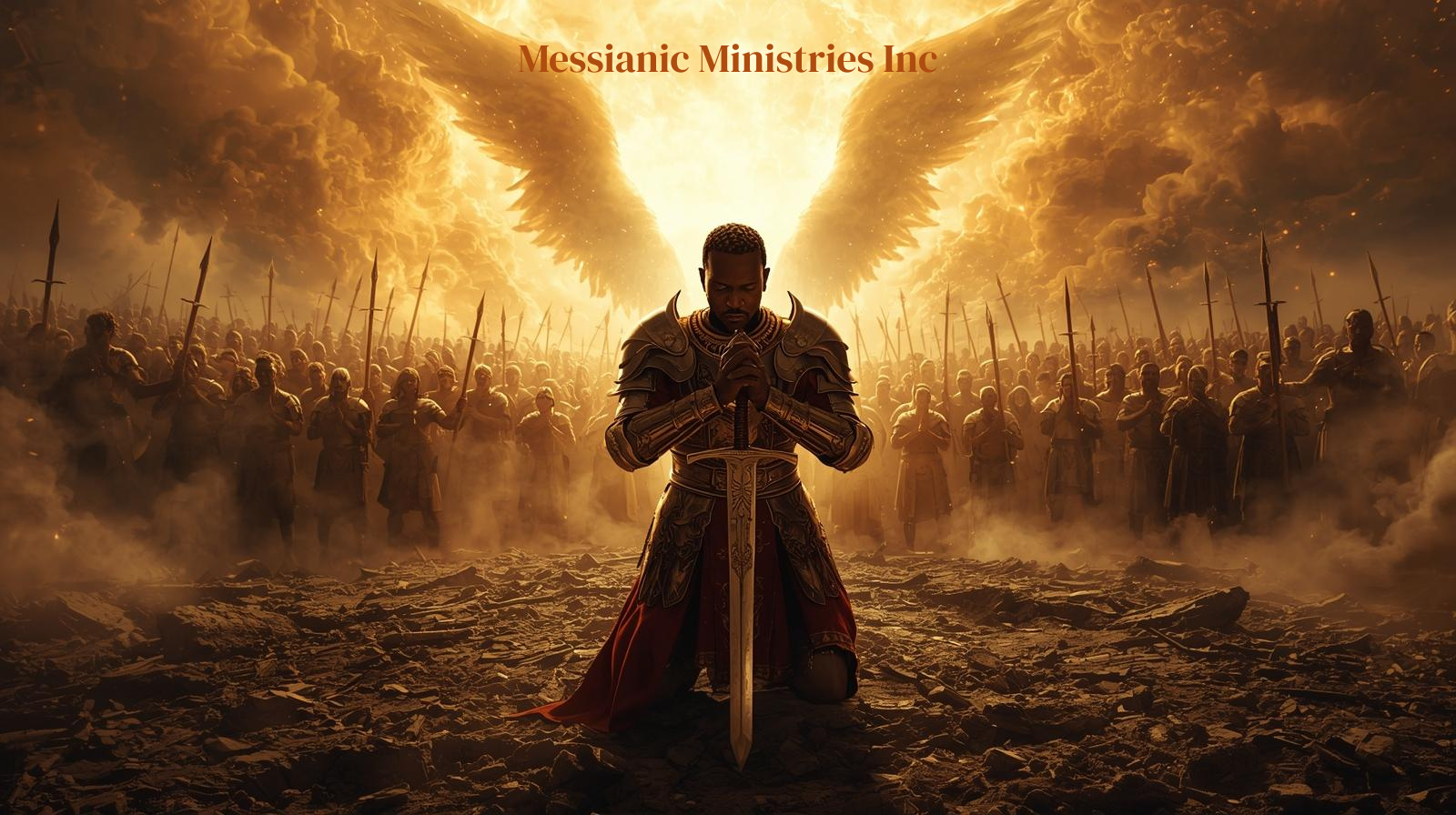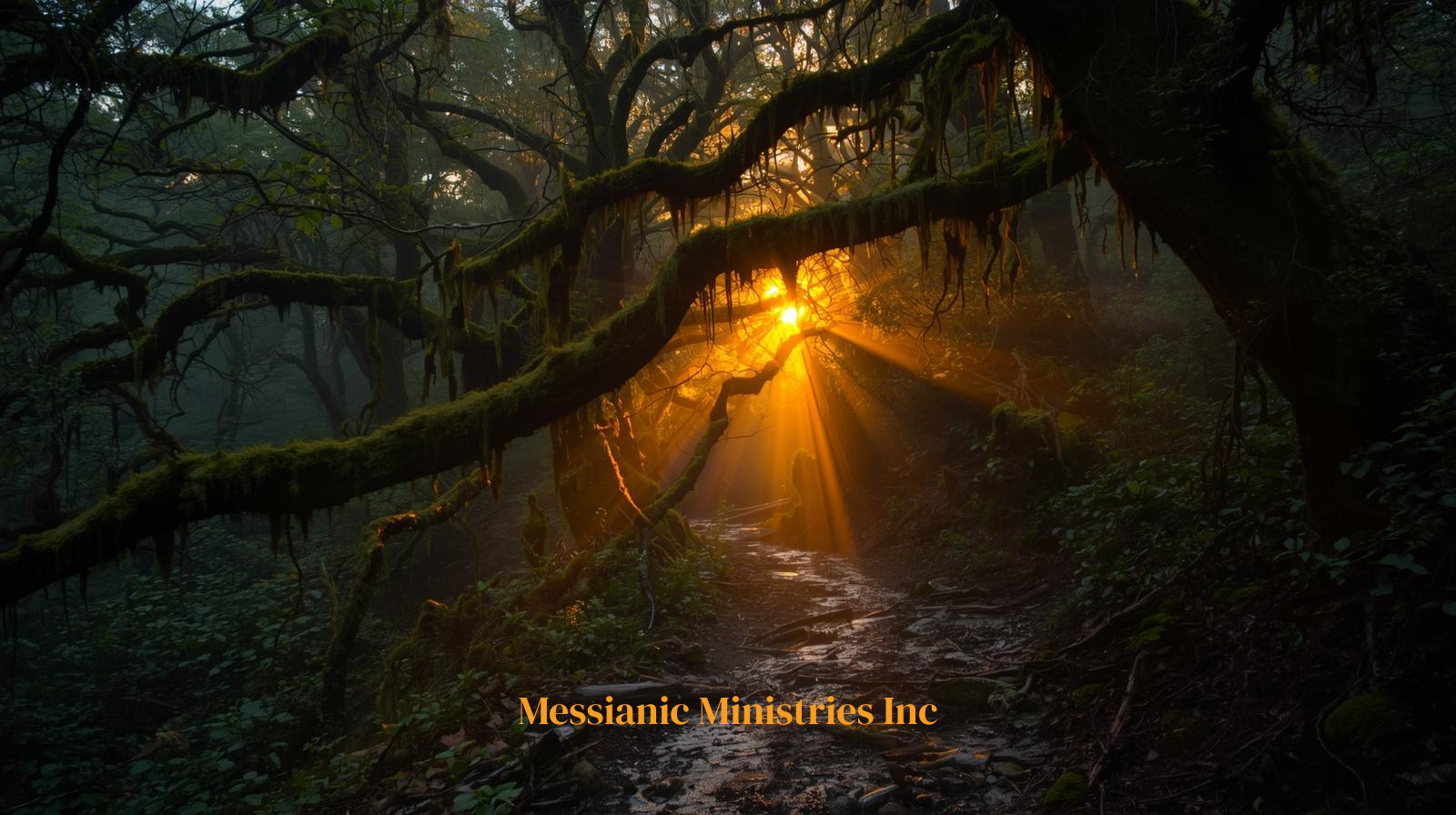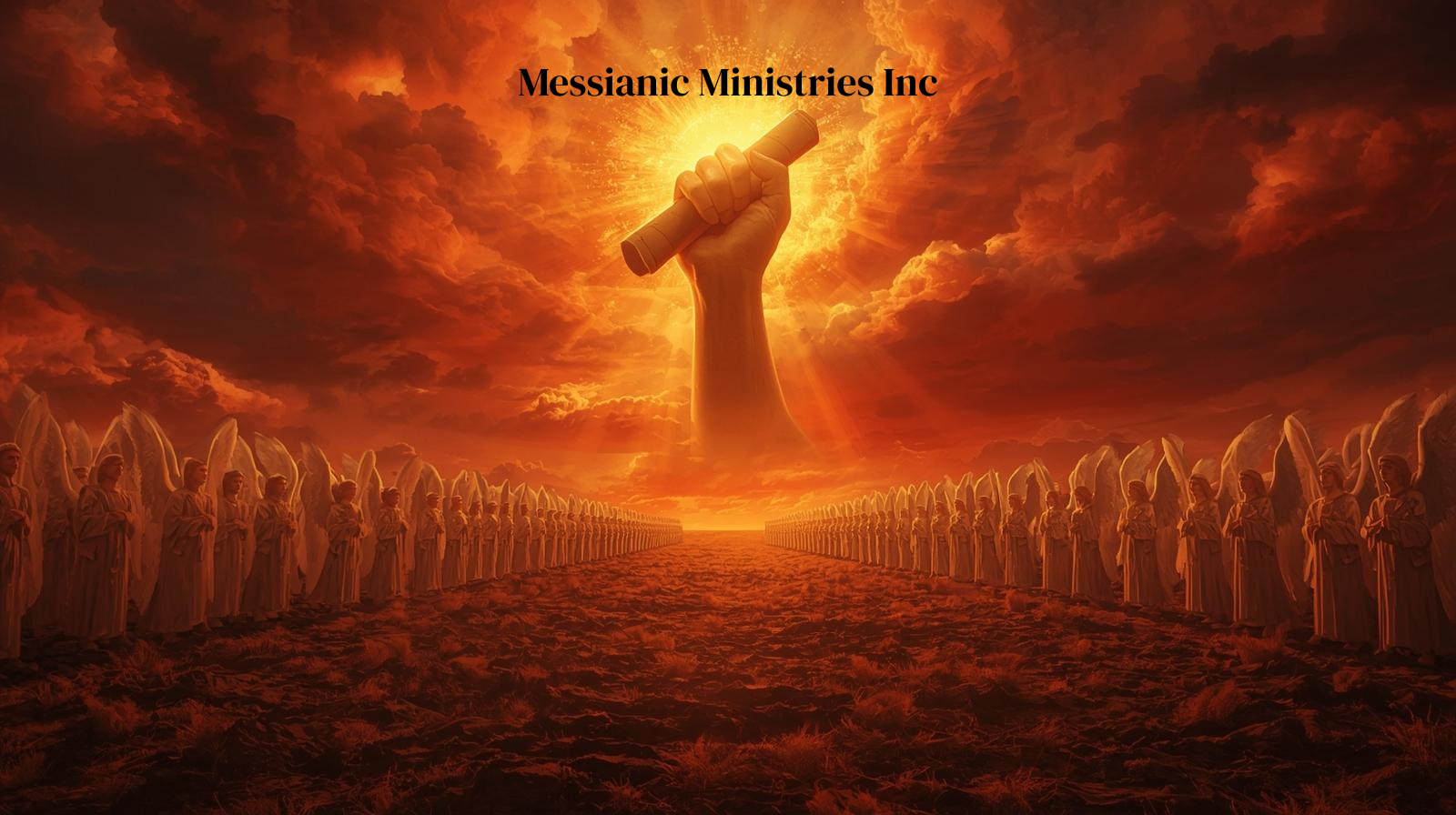The Death of Death
Isaiah 25:8
Isaiah's prophetic vision in this verse penetrates the veil of sadness, suffering, and mortality that has afflicted humanity since Eden. The prophet proclaims with majestic audacity that the Lord will conquer death triumphantly. The image is compelling: death, having swallowed many generations, is itself engulfed by the might of God. This reversal anticipates the Messiah's victory, whose resurrection converted the grave from a confinement into a conduit to glory.
The apostle Paul reiterates similar sentiment decades later: “Death is swallowed up in victory” (1 Corinthians 15:54). Paul perceives Isaiah’s vision as realized in Christ’s resurrection and the prospective hope of the redeemed. By means of the crucifixion and the empty tomb, Jesus neutralized death, removing its sting and rendering it impotent for believers.
Equally poignant is the assurance that the Lord will remove tears from all visages. This is not a detached edict but a personal expression of divine benevolence. God Himself condescends to touch the visage of His people, eliminating not only the source of their sadness but also the tangible signs of it. All sorrow and every tear expended in the realm of anguish are acknowledged and restored in His presence.
The Scripture guarantees that He will remove the chastisement of His people from the entire globe. Israel has endured scorn from neighboring nations, and, more broadly, humanity endures the stigma of sin. The Messiah’s atonement eliminates condemnation, justifying the people of God before all creation. No charge can prevail against those enveloped in His righteousness.
The last statement is definitive: for the LORD has declared it. The assurance of this promise is founded not on human endeavor or historical context, but on the unchangeable word of God. What He has proclaimed is infallible. The defeat of death is not a possibility; it is an inevitability that has already commenced with the resurrection and awaits ultimate fulfillment at Christ's return.
Death, previously the consumer, is ultimately consumed by God's triumph.
The resurrection of Christ constitutes the realization of Isaiah's prophetic vision.
God's profound love is manifested in the eradication of every tear.
The admonition of sin and the disgrace of His people are eternally abolished.
The validity of the promise is founded on the unwavering word of God.
In Messiah, the power of death is shattered, grief is obliterated, and the condemnation of sin is removed. We remain hopeful because the Lord has proclaimed, and His word guarantees that the conclusion of death heralds the beginning of eternal life.
#Christianity #jesus #christiantiktok #bible #foryou #cogic #cogbf #cog #apostolic #seventhdayadventist #messianicministriesinc #allnations #fgbcf #tiktok #bibleverse #prophetic #fght #paw
The Glory Beyond the Garment
St Matthew 6:28-29
In His Sermon on the Mount, Yeshua emphasizes the lilies of the field as evidence of divine provision for His disciples. Flowers do not toil or spin, yet they are adorned with a magnificence that exceeds that of King Solomon, the most sagacious and affluent monarch of Israel. This instruction serves not just as a mild admonition against anxiety but also as a prophetic revelation of the Messiah’s function as the authentic Source of righteousness and protection for His followers.
In Jewish philosophy, clothes frequently represented dignity, sanctity, and identity. The high priest's ephod, adorned with gold and gemstones, exhibited Israel's holiness before God. Solomon's clothes, intricately wrought, epitomized regal splendor. However, the Messiah asserts that the field lily—untouched, unrefined, and unembellished—exceeds such splendor as it is decked by the hand of God Himself.
This directs us towards the profound promise of the Messiah's justice. Isaiah foretold: “He has adorned me with the garments of salvation, He has enveloped me with the robe of righteousness” (Isaiah 61:10). Similar to how lilies rely entirely on the Father’s sustenance for their beauty, we must also rely on Yeshua, who adorns us not with external magnificence, but with the imperishable radiance of His righteousness.
Solomon's kingdom, despite its opulence, deteriorated with time. The righteousness conferred by the Messiah is everlasting, anchored in the essence of God. The lilies serve as a reminder that what God adorns, He sustains, and what He sustains, He glorifies. This is why Yeshua instructs us not to be concerned about the clothing of tomorrow, for He is our eternal covering, our everlasting coat of glory.
This chapter invites us to transcend concern and embrace trust, moving beyond human effort to divine sufficiency. Our beauty before God is not derived from our own efforts, but from what He has adorned us with in the Messiah—the glory that transcends that of the most illustrious monarchs.
The lilies represent divine provision and inherent beauty without human intervention.
The Messiah exceeds Solomon, providing a righteousness that endures eternally.
Apparel signifies spiritual protection; in Yeshua, we are adorned with salvation.
Anxiety abates when we place our trust in the One who adorns creation with splendor.
The magnificence of the Messiah adorns us more exquisitely than the lilies of the field and more opulently than Solomon in his grandeur. Have faith in His supply, for in Him, you are adorned with everlasting righteousness.
#Christianity #jesus #christiantiktok #bible #foryou #cogic #cogbf #cog #apostolic #seventhdayadventist #messianicministriesinc #allnations #fgbcf #tiktok #bibleverse #prophetic #fght #paw
The Shepherd Who Knows His Flock
Psalms 100:3
Psalm 100:3 asserts a fundamental truth of faith: the LORD is God. This proclamation focuses all reverence, identity, and aspiration on Him. In antiquity, numerous entities asserted deity, yet Israel was summoned to acknowledge the covenant-keeping God, who exclusively creates and sustains His people.
The verse underscores divine ownership: “It is He who has created us, not we ourselves.” This contradicts the essence of independence and self-sufficiency that characterizes every era. Humanity does not originate itself, nor can it maintain existence independently of God. This indicates Christ, through whom "all things were made" (John 1:3), in a Messianic context. Our lives, salvaged by His blood, are unequivocally His—originating from His strength and acquired via His sacrifice.
The shepherd imagery in this psalm anticipates the Messiah's declaration: “I am the good shepherd, and know my sheep, and am known of mine” (John 10:14). Being referred to as “the sheep of his pasture” is simultaneously humbling and reassuring. Sheep are vulnerable without their shepherd; nevertheless, under His guidance, they discover security, sustenance, and purpose. The Lord's pasture is not desolate, but rather a realm of abundance, rejuvenation, and covenantal favor.
For contemporary believers, Psalm 100:3 serves as an invitation to abandon the delusion of control and find solace in the assurance of membership. In Christ, our Shepherd, we are recognized individually, guided to verdant pastures, and safeguarded against the robber who seeks only to steal and annihilate. The Messianic promise signifies not only divine observation from a distance but also God's presence in Christ, who dwells among His followers, directing us through His Spirit.
This psalm grounds worship on acknowledgment, appreciation, and submission. It asserts that our identity is not self-constructed, but divinely bestowed. Our hope is robust, solidly grounded in His covenant fidelity via the Messiah.
The LORD is the sole deity—creator and sustainer.
We are His, not our own.
Christ embodies the archetype of the Good Shepherd, who is intimately acquainted with His flock.
Our stability and sustenance derive from His pasture, not from our efforts.
Psalm 100:3 emphasizes that our existence is not self-owned; we belong to Him, fashioned by His hands and guided by His affection. In the Messiah, the assurance of belonging is realized, and our worship emanates from the joy of being recognized, guided, and safeguarded by the Shepherd of our souls.
#Christianity #jesus #christiantiktok #bible #foryou #cogic #cogbf #cog #apostolic #seventhdayadventist #messianicministriesinc #allnations #fgbcf #tiktok #bibleverse #prophetic #fght #paw
The Light That Came To Save
St John 12:46-47
In the statements of Christ documented in John 12, we find both revelation and salvation. Jesus proclaims Himself the Light of the world, not a mere reflection or a diminishing flame, but the true luminosity of God embodied in human form. In Scripture, light symbolizes clarity, holiness, and life, whereas darkness signifies sin, ignorance, and death. The arrival of the Messiah was not alone to illuminate darkness but to offer an escape from it.
Observe the profundity of His compassion: “If any individual hears my words and does not believe, I do not judge him.” This does not absolve culpability; rather, it emphasizes the divine purpose— the Messiah's initial coming was not for condemnation, but for salvation. Judgment will arrive at the designated time, however during His earthly ministry, Christ shown mercy. He was the Lamb, not yet the Lion.
The Messianic promise is significant: salvation is accessible to “whosoever believeth”—a universal call that surpasses cultural, national, and generational limits. Light is impartial in its illumination; it reveals and beckons. Belief is the crucial factor—those who embrace the Light experience liberation, whereas those who reject it remain in self-imposed darkness.
This text imparts a lesson regarding the patience of God. The Son could have justly administered judgment at His initial arrival; nevertheless, He personified grace, prolonging the period of mercy. This illustrates the essence of the Father: “not wishing that any should perish, but that all should attain repentance” (2 Peter 3:9).
For the adherent, these words function as both solace and mandate. We find solace in the certainty that the Messiah arrived to redeem us rather than to condemn us. Commission, for His light within us must remain visible. As He arrived as Light, we are summoned to emanate His Light into a world still navigating in darkness.
Jesus is the authentic Light that eradicates all darkness.
His objective during the initial advent was salvation rather than judgment.
Faith in Him is essential for evading spiritual obscurity.
Divine mercy is universally accessible—an invitation extended to all.
As His disciples, we are carriers of His Light.
The Messiah arrived as Light, not to condemn but to redeem. Let us traverse in His luminosity, accept His compassion, and mirror His brilliance, enabling others to emerge from obscurity and embrace the life He generously offers.
#Christianity #jesus #christiantiktok #bible #foryou #cogic #cogbf #cog #apostolic #seventhdayadventist #messianicministriesinc #allnations #fgbcf #tiktok #bibleverse #prophetic #fght #paw
Faith Perfected in Works
James 2:22-23
James reveals a compelling truth: faith is dynamic; it evolves, operates, and is expressed via obedience. Abraham's faith was not solely an internal belief; it manifested via his readiness to act on God's declarations. His confidence in God's covenant promise was demonstrated not only through his faith but also through his obedience during trials.
James asserts that Abraham's faith was "wrought with his works," indicating that belief and action were inextricably linked. Faith constituted the foundation, while works represented the outcome. Works did not generate righteousness; rather, they validated the authenticity of Abraham's faith in God. By offering Isaac, Abraham's faith was perfected, demonstrating that genuine faith transcends mere intellectual agreement and manifests in living experience.
The same idea is applicable to us in Messiah Yeshua. Salvation is attained through grace via faith; yet, authentic faith will unavoidably manifest in acts of obedience, love, and service. The Messiah stated, “By their fruits ye shall know them” (Matthew 7:20). Faith is intangible, yet actions render it evident.
Observe the exquisite title bestowed upon Abraham: “the Friend of God.” Friendship with God originates from faith that manifests in trustful obedience. This is not distant service but close companionship. Abraham's faith conformed to the divine will, rendering him a conduit of God's promise to the nations. In Messiah, that identical camaraderie is offered to us. By faith refined through actions, we also become friends of God, His covenant partners, and His witnesses to the world.
In a society that venerates superficiality in careers, James urges us towards sincerity. To assert faith devoid of actions is to hold a mere empty facade. To manifest faith by virtuous deeds is to illuminate as descendants of Abraham and followers of Yeshua.
Faith and works are not antagonistic but rather interconnected—faith serves as the foundation, while actions represent the outcome.
Abraham's compliance demonstrated the profundity of his faith.
Righteousness is attributed through faith, yet validated by deeds.
Genuine faith transforms us into friends of God, rather than mere servants.
The Messiah summons us to a vibrant, dynamic, and evident faith. Inward faith is insufficient; nevertheless, faith that manifests through action demonstrates maturity and a profound relationship with God. As Abraham's faith was manifested via his actions, our faith in the Messiah must also be demonstrated, establishing us as friends of God and beneficiaries of the promise.
#Christianity #jesus #christiantiktok #bible #foryou #cogic #cogbf #cog #apostolic #seventhdayadventist #messianicministriesinc #allnations #fgbcf #tiktok #bibleverse #prophetic #fght #paw
The Glory of Humility
Proverbs 11:2
The wisdom of Proverbs repeatedly presents a divine archetype that the Messiah exemplifies. Solomon juxtaposes pride and humility, not only as human characteristics but as spiritual demarcations that influence fate. Pride is depicted as an enhancement of self that ultimately results in disgrace, since it usurps the position of God. Humility facilitates the reception of wisdom, so revealing Christ.
Jesus, the anticipated Messiah, exemplifies this adage flawlessly. Although He is the everlasting Word through whom all things were created, He humbled Himself and assumed the form of a servant (Philippians 2:7–8). He arrived devoid of terrestrial splendor or temporal power, born in a stable, mingling with the humble, and prioritizing service over being served. His humility was not a sign of weakness; rather, it was wisdom manifested, harmonizing with the Father's desire and establishing Himself as the Lamb who removes the sin of the world.
Pride, conversely, represents the route of the opponent. Pride precipitated Satan's downfall, hardened Pharaoh's heart, and obscured the vision of the religious authorities of Jesus' era. The disgrace of pride may not be instantaneous, however its conclusion invariably leads to destruction. Resisting pride entails adopting the mindset of Christ, who humbled Himself unto death, specifically the death on the cross, and was subsequently exalted.
This proverb serves as both guidance and assurance for the believer. Act with humility, for wisdom is bestowed not upon the self-aggrandized but upon those who submit to God. By embracing humility, we emulate the Messiah's example and acquire the wisdom that emanates from above. Humility enhances our perception of truth, maintains our receptiveness to learning, and prepares us for divine elevation at the appropriate moment.
Proverbs 11:2, in a messianic context, signifies the everlasting principle realized in Christ: the kingdom of God is bestowed not upon the arrogant and influential, but upon the humble and unassuming. In Him, humility is adorned with wisdom and honor.
Pride engenders humiliation; humility paves the path to wisdom.
Jesus is the consummate embodiment of humility and wisdom in practice.
Pride elevates the ego, while humility elevates God.
The Messiah's humility paved His way to everlasting glory.
Adherents are urged to emulate His model of humility and service.
In Christ, we discover that humility is not the lack of strength but the core of understanding. To walk as He walked is to renounce pride and accept the wisdom of the cross, recognizing that the glory of God's kingdom resides with the humble.
#Christianity #jesus #christiantiktok #bible #foryou #cogic #cogbf #cog #apostolic #seventhdayadventist #messianicministriesinc #allnations #fgbcf #tiktok #bibleverse #prophetic #fght #paw
Joy in the Portion of the Lord
Ecclesiastes 9:7
The book of Ecclesiastes frequently addresses the transitory essence of life, while continually directing us to the beauty of appreciating God's blessings with thankfulness. In this phrase, Solomon encourages us to "consume your bread with joy and drink your wine with a cheerful heart"—not in reckless excess, but in the assurance of divine favor.
This concerns not just daily sustenance but also the disposition of the heart. Bread and wine possess covenantal importance throughout Scripture. Bread maintains existence, while wine imparts joy to the spirit (Psalm 104:15). In Messianic interpretation, these components have their definitive realization in Yeshua, who proclaimed, “I am the bread of life” (John 6:35) and, during the Last Supper, took the cup and stated, “This is my blood of the new covenant” (Matthew 26:28). This text anticipates the delight of communion with the Messiah, in whom God wholly endorses the deeds of faith.
The acceptance to which Solomon alludes is not attained via human effort, but rather bestowed by grace. In the Messiah, our endeavors are consecrated, and our actions are rendered acceptable to God. Where Solomon could merely anticipate in obscurity, we now engage in the essence: the elation of redemption and reconciliation. The bread and wine before us serve as emblems of nourishment and marks of everlasting covenant delight.
This text instructs us on the importance of cultivating conscious gratitude. Life is ephemeral and unpredictable, as Ecclesiastes elucidates, yet God has bestowed His grace. Consuming food and drink with gladness is, thus, an act of reverence, demonstrating our trust in God's supply and our reliance on His promises. When adherents convene at the Lord’s Table, we manifest this truth: celebrating the bread and cup, proclaiming His death until His return (1 Corinthians 11:26).
Ecclesiastes 9:7 conveys the Messianic promise: we are urged to eschew despair in life's futility and instead to exult in the covenantal joy of the Messiah, who has ensured God's acceptance for us.
Divine acceptance constitutes the cornerstone of authentic joy.
Bread and wine symbolize Yeshua, the Bread of Life and the Cup of the Covenant.
Joyful life constitutes an act of reverence, grounded in gratitude and faith.
The Lord's Table embodies the wisdom of Ecclesiastes, offering eternal hope.
Existence beneath the sun may be transient, however in the Messiah, we discover everlasting acceptance and delight. Let us consume our bread with joy, partake of the cup with gratitude, and approach each day as individuals who have received divine favor.
#Christianity #jesus #christiantiktok #bible #foryou #cogic #cogbf #cog #apostolic #seventhdayadventist #messianicministriesinc #allnations #fgbcf #tiktok #bibleverse #prophetic #fght #paw
Kept by the Begotten Son
1st John 5:18
The Apostle John concludes his initial epistle with tremendous assurance for the believer in Yeshua the Messiah. This verse delineates a distinct separation between individuals who are subjugated to sin and those who are born of God. To be "born of God" entails engaging in the new birth that the Messiah assured Nicodemus in John 3: one must be reborn by water and Spirit. This rebirth engenders a metamorphosis in nature—a revitalized essence, an invigorated spirit, and an aspiration to pursue justice.
The phrase "sinneth not" does not suggest that the believer is infallible. John explicitly recognizes previously in the letter that if anyone transgresses, “we have an advocate with the Father, Jesus Christ the righteous” (1 John 2:1). The born-again believer does not persist in unrepentant, persistent sin as a lifestyle. The Spirit within incites repentance and facilitates virtuous life.
The latter portion of the verse transitions to a Messianic focus: “he who is begotten of God safeguards himself.” The sole begotten of God is Yeshua, the Son of God, who safeguards and protects His people. By uniting with Him, Christians are guided by His protective hand. The adversary may entice, blame, and attempt to consume, yet he cannot ultimately prevail against people who are sustained by the Messiah. This corresponds with Yeshua's declaration: "My sheep hear my voice, and I know them, and they follow me; and I grant them eternal life; and they shall never perish, nor shall anyone seize them from my hand" (John 10:27–28).
This fact is both reassuring and empowering. The adversary relinquishes control when the believer embraces their identity as a child of God. No curse, allegation, or malevolent plot can supersede the blood of the Lamb. The adherent who remains in Christ is invulnerable in the ultimate sense, as the malevolent one has been vanquished at Calvary.
Being born of God entails acquiring a new nature through the Spirit of the Messiah.
Believers do not engage in habitual sin but are summoned to holiness and repentance.
Yeshua, the sole progeny of God, safeguards and protects His followers.
The malevolent cannot eventually affect those who abide in Christ.
The Messianic assurance in 1 John 5:18 guarantees divine safeguarding and metamorphosis. Conceived by God, safeguarded by the Messiah, and impervious to malevolence, the believer traverses in triumph—not through personal fortitude but through the preserving authority of Yeshua, the Son of God.
#Christianity #jesus #christiantiktok #bible #foryou #cogic #cogbf #cog #apostolic #seventhdayadventist #messianicministriesinc #allnations #fgbcf #tiktok #bibleverse #prophetic #fght #paw
The Power of the Gospel
Romans 1:16
Paul's assertion in Romans 1:16 is both audacious and fundamental: he is unashamed of the gospel. In a society where adherence to Christ frequently resulted in mockery, persecution, and even mortality, Paul's unwavering conviction in the gospel's potency attests to its indomitable veracity. This verse is not only a personal story; it is a Messianic declaration.
The expression "to the Jew first, and also to the Greek" is essential for comprehending God's redemptive hierarchy. The gospel did not emerge in isolation; it represents the fulfillment of Israel's covenantal promises, realized in Messiah Yeshua. God, in His wisdom, provided salvation through the genealogy of Abraham, Isaac, and Jacob, exemplifying His fidelity to His chosen people. Through Yeshua, this salvation transcends Israel, dismantling the barrier of separation and reconciling Jew and Gentile into a singular entity (Ephesians 2:14–16).
The gospel transcends simple philosophy or religious doctrine; it embodies the power of God. The Greek term dynamis denotes explosive, transforming power. This authority originates not from human argument but from God Himself, who resurrects the dead, absolves sins, and bestows eternal life. The very Spirit that resurrected Yeshua from the tomb now operates through the gospel, effecting transformation in lives and societies globally.
To be "unashamed" is to confront opposition with confidence, acknowledging the profound significance of the gospel. Currently, numerous adherents continue to grapple with apprehensions over rejection, mockery, or concession. Paul's exhortation elevates our perspective: the gospel of the Messiah merits proclamation as it embodies the sole authentic hope of salvation.
The gospel originates from Messianic roots, initially directed towards the Jews and subsequently extended to all nations.
The gospel represents the power of God, independent of human strength or persuasion.
Embracing the gospel without shame serves as a testament to faith and an expression of obedience.
Salvation is accessible to all who believe—no distinctions of race, status, or background preclude anyone.
The Messianic promise manifested in Yeshua constitutes a gospel of potency, grounded in Israel's covenant and disseminated throughout the world. Let us, like to Paul, embrace this good news without shame, for it embodies the divine power of redemption for all who believe.
#Christianity #jesus #christiantiktok #bible #foryou #cogic #cogbf #cog #apostolic #seventhdayadventist #messianicministriesinc #allnations #fgbcf #tiktok #bibleverse #prophetic #fght #paw
Choose This Day
Joshua 24:15
Joshua's challenge to Israel was not simply a decision for a day, but a covenantal commitment that would resonate through centuries. At the brink of the Promised Land, the populace had to decide whose authority they would heed and whose governance they would accept. Joshua's statements are simultaneously pastoral and prophetic, urging the rejection of idolatry and complete alignment with the covenantal LORD.
This chapter possesses Messianic significance, directing us towards the larger Joshua—Yeshua, Jesus Christ—who summons His people to a resolute commitment. Similar to Israel's entrapment by foreign deities, we are likewise faced daily with the seduction of contemporary idols: affluence, authority, autonomy, and cultural concession. The decision is unchanged: do we worship the transient deities of this world, or shall we revere the everlasting Lord of glory?
Joshua articulates his own conviction: “As for me and my household, we shall serve the LORD.” It is not only an assertion of personal devotion but a profession of covenantal leadership. He establishes his household as a testament to fidelity. The Messianic promise is realized in Christ, who exemplified covenant fidelity. In obedience to the Father, Jesus prioritized the will of God over worldly temptations and sacrificed His life for the redemption of many.
Each household and individual believer confronts a daily dilemma of loyalty. The elegance of this phrase lies in its emphasis on choice rather than perfection. To "serve the LORD" entails engaging in a relationship characterized by obedience, trust, and adoration. Through the Spirit, we are enabled to serve as witnesses in a society that frequently succumbs to false deities.
Today, we reaffirm Joshua's determination: our houses, our hearts, and our families are dedicated to the Lord. The Messiah has not abandoned us to make choices independently; He has ratified the covenant through His blood, and in Him, our work transforms into worship, our obedience evolves into joy, and our decision culminates in eternal life.
The imperative for covenant fidelity is both perennial and pressing.
Joshua's choice presages the Messiah's flawless obedience.
Contemporary idols should be acknowledged and dismissed.
Serving the LORD constitutes a collective testimony rather than an individual one.
Christ empowers us to be steadfast in our covenant commitment.
Just as Joshua's voice resonated across Israel's assembly, the Spirit summons us today: decide whom you will serve. In Christ, the superior Joshua, we discover both the authority and the assurance to assert with confidence—“as for me and my household, we will serve the LORD.”
#Christianity #jesus #christiantiktok #bible #foryou #cogic #cogbf #cog #apostolic #seventhdayadventist #messianicministriesinc #allnations #fgbcf #tiktok #bibleverse #prophetic #fght #paw
Lending to the Lord
Proverbs 19:17
The wisdom of Proverbs articulates a vital truth: acts of compassion toward the impoverished are not squandered—they constitute transactions with the divine. To "have pity" is to regard another's pain with active compassion rather than apathy. Scripture links this charity with loan to the Lord, a profound picture indicating that God Himself occupies the position of the impoverished.
In the context of messianic interpretation, this aphorism acquires profound importance. Yeshua the Messiah associated Himself with "the least of these" (Matthew 25:40). By feeding the hungry, clothing the naked, or visiting the imprisoned, we serve Him personally. Therefore, living generously entails engaging in the ministry of Christ.
This principle disrupts the global economy. Terrestrial financing often demands interest and recompense, whereas the economy of the Kingdom is sustained by altruistic generosity, with God Himself guaranteeing restitution. His prize is not solely monetary, but everlasting—quantified in joy, spiritual wealth, and the legacy of His Kingdom. The cross signifies the supreme offering from Heaven: God sacrificing His Son for a world destitute due to sin. Through Christ's impoverishment, we attain wealth (2 Corinthians 8:9).
Consequently, every act of mercy towards the impoverished transcends mere charity; it is prophetic. It depicts the Messiah who arrived as a Servant, who abased Himself and identified with the humble. The Messianic promise underscores that giving is vital, as it harmonizes our hearts with His. By giving, we demonstrate that our trust lies not in material possessions but in the everlasting promises of God.
Contemporary believers should not undervalue the spiritual potency of giving. Extending kindness constitutes a covenantal exchange with God. He observes, He documents, and He recompenses—not invariably in anticipated manners, but consistently in ways that exalt Him.
Providing assistance to the impoverished is regarded by God as a direct loan to Him.
Yeshua associates Himself with "the least of these."
The Kingdom's economy prioritizes compassion over profit.
Generosity symbolizes the Messiah's inherent self-sacrificial disposition. God guarantees everlasting recompense for deeds of compassion.
Extending kindness to the impoverished is not a loss but an investment in eternity. In every gift bestowed and every hand offered, we are lending to the Lord Himself, who, as the faithful Redeemer, will recompense with eternal wealth.
#Christianity #jesus #christiantiktok #bible #foryou #cogic #cogbf #cog #apostolic #seventhdayadventist #messianicministriesinc #allnations #fgbcf #tiktok #bibleverse #prophetic #fght #paw
Love Revealed in Messiah
1st John 4:8
The apostle John articulates a fundamental truth in the succinct phrase: “God is love.” Love is not merely an action of God; it constitutes His fundamental essence. To know God is to experience love in its most unadulterated essence. John presents this truth not as a philosophical concept but as a tangible reality shown in Yeshua, the Messiah.
The incarnation of the Messiah exemplifies the pinnacle of divine love. The eternal Word assumed flesh, not solely to instruct us on God's love, but to personify it. Each miracle He executed, every utterance He articulated, and eventually His sacrificial demise on the cross, was the tangible manifestation of God's love in action. In the absence of the Messiah, humanity would find it challenging to comprehend the essence of divine love.
In the Messianic promise, God's covenantal affection transcends Israel to encompass the nations. The love referenced here is agape—an unconditional, sacrificial, and redemptive love. It neither awaits validation nor diminishes in response to rejection. The Messiah's love penetrates brokenness, redeems the sinner, and reconciles the estranged with God.
However, John provides a solemn reminder: “He who does not love does not know God.” Our capacity to embody God's love serves as proof of our communion with Him. This love is not merely sentimental but perhaps transforming. It enables us to forgive as we have been forgiven, to demonstrate compassion in the face of indifference, and to provide grace even when offended. Thus, the believer serves as a living testament to the Messiah's love for the world.
The Messianic promise asserts that the love of God, manifested in Yeshua, will ultimately inundate the entire earth like waters envelop the sea. Until that time, we are urged to embody that love daily, serving as conduits for His light in a world characterized by division, animosity, and fear.
* God is not only loving—He is love in his own essence.
* The life and sacrifice of the Messiah exemplify the pinnacle of divine love.
* Knowledge of God is demonstrated via a life characterized by love.
* Agape love is unconditional, sacrificial, and redemptive.
* Adherents are summoned to embody God's love in the world.
The Messianic promise articulated in 1 John 4:8 is that via the knowledge of the Messiah, we experience the essence of God—love itself. To dwell in Him is to embody that love, serving as a testament that directs the world to the One who is eternal love.
#Christianity #jesus #christiantiktok #bible #foryou #cogic #cogbf #cog #apostolic #seventhdayadventist #messianicministriesinc #allnations #fgbcf #tiktok #bibleverse #prophetic #fght #paw
Guarding the Covenant and Promise
Deuteronomy 4:9
The directive in Deuteronomy 4:9 is both grave and imperative: “Only take heed to thyself, and keep thy soul diligently.” Moses emphasizes to Israel the necessity of deliberate recall and loyal transmission in their connection with God. The covenant at Sinai was intended not solely for one generation, but for all subsequent generations. Amnesia would result in idolatry, exile, and fragmentation, but recollection would ground them in God's assurances.
This verse messianically directs us to the eternal testimony of Christ, the manifestation of God's covenant fidelity. As Israel was cautioned to "guard their soul meticulously," the Messiah arrived to safeguard the soul of Israel and to bestow covenant blessings onto the nations. In Him, recollection and assurance intersect. The manifestations of God—His fire, voice, and glory—witnessed by Israel at Sinai are ultimately realized in the life, death, and resurrection of Christ.
The excerpt emphasizes generational accountability: “instruct your sons and your grandsons.” This instruction transcends the mere recitation of rules, focusing instead on conveying the dynamic essence of God's salvific actions. The Messiah accomplishes this by establishing a New Covenant inscribed on hearts (Jeremiah 31:31–34), guaranteeing that the testimony of God’s redemption remains indelible.
In contemporary life, the difficulty persists—forgetfulness is an enduring concern. We inhabit a realm of diversions, where the marvels of God may diminish from recollection if not diligently preserved. In the Messiah, the Spirit perpetually instructs us, inscribing the evidence of Christ’s completed work upon our hearts. Our obligation parallels that of Israel: to vigilantly safeguard our spirits, to recall the deeds of the Lord, and to impart to the next generation not merely the text, but the essence of the covenant manifested in Jesus.
Each recounting of God's fidelity sustains the promise. Parents, pastors, and disciples are tasked with conveying the immutable truth of the Messiah to their followers, ensuring that the covenantal flame remains perpetually vibrant.
* The exhortation to be vigilant and safeguard the soul is fundamental to covenant fidelity.
* Forgetfulness results in spiritual disconnection; remembering grounds us in God's assurances.
* The Messiah actualizes the covenant by embodying its remembrance and its prospective fulfillment.
* Instructing the subsequent generation guarantees the promise is maintained and enacted.
Deuteronomy 4:9 transcends mere recollection; it serves as a prophetic connection to the Messiah, who ensures covenant fidelity across all generations. As we protect our souls in Him and convey His testimony, the promise of God endures, radiating vibrantly until its fulfillment in His eternal reign.
#Christianity #jesus #christiantiktok #bible #foryou #cogic #cogbf #cog #apostolic #seventhdayadventist #messianicministriesinc #allnations #fgbcf #tiktok #bibleverse #prophetic #fght #paw
The Precious Path of Wisdom
Proverbs 3:15-17
Proverbs personifies wisdom as a valuable treasure surpassing earthly riches, more coveted than rubies, gold, or any material property. This insight, however, is not theoretical—it is Christ Himself. Paul asserts that in Him "are concealed all the treasures of wisdom and knowledge" (Colossians 2:3). The quest for wisdom is, therefore, the quest for the Messiah, as He represents the entirety of God's counsel, truth, and life.
Solomon asserts that knowledge possesses “length of days” in one hand and “riches and honour” in the other. This not only pertains to daily blessings but also prophetically alludes to eternal life and glory in Christ. In Him, we obtain the gift of eternal days, unencumbered by the deterioration of this world, and the genuine wealth that is impervious to moth and rust. Honor is not the transient acclaim of individuals but the everlasting significance of glory granted to those who follow Him.
The avenues of wisdom are characterized as "pleasantness" and "peace." This directly reflects the Messianic promise in Isaiah 9:6, where the anticipated Christ is referred to as the “Prince of Peace.” In Him, the tumult of sin is quelled, and harmony with God is attained. Walking in wisdom entails walking in the Messiah, and walking in the Messiah results in experiencing a peace that transcends all understanding.
The juxtaposition of material wealth and spiritual enlightenment highlights the futility of a life driven by desire independent of God. No material item, desire, or aspiration rivals the profound richness of knowing Christ. Here, Solomon's words serve as both a promise and an invitation: select wisdom, embrace Christ, and attain the treasures of eternity.
*Christ represents the essence of divine wisdom (Colossians 2:3).
* Genuine wealth and honor are everlasting, rather than materialistic.
* The road of wisdom culminates in tranquility and contentment, realized in the Messiah.
*Worldly riches diminish in significance when juxtaposed with the life discovered in Christ.
The wisdom of God is not a concept to comprehend but a Person to emulate—our Messiah, Yeshua. To walk in Him is to adopt a life characterized by peace, honor, and everlasting recompense, an invaluable treasure.
#Christianity #jesus #christiantiktok #bible #foryou #cogic #cogbf #cog #apostolic #seventhdayadventist #messianicministriesinc #allnations #fgbcf #tiktok #bibleverse #prophetic #fght #paw
Praying Always in the Spirit
Ephesians 6:18
Paul closes his depiction of the believer's armor with an essential, sustaining directive: "Praying continually with all prayer and supplication in the Spirit." The armor of God, while formidable, is insufficient without prayer. Prayer is the warrior's breath, the saint's lifeline, and the force that activates celestial armor. In the absence of prayer, the armor assumes a decorative rather than a practical role.
The expression "in the Spirit" is essential. This refers not to futile repetition or artifice in speech, but to Spirit-guided contact with the Father. The Messianic fulfillment, via Yeshua’s triumph, facilitates the outpouring of the Spirit, allowing us to pray in accordance with God's will. As the Messiah intercedes at the right hand of the Father (Romans 8:34), we are likewise summoned to participate in that intercession, supported by the Spirit who articulates inexpressible groanings on our behalf (Romans 8:26).
Observe Paul's emphasis on perseverance: “watching thereunto with all perseverance.” Prayer is not a trivial endeavor but a rigorous practice. The adversary aims to exhaust the faithful, thereby diminishing their vigilance. Nevertheless, the Messiah urges His followers to stay vigilant, interceding not alone for themselves but also "for all saints." The Messianic promise asserts that the Body of Christ is unified in intercession, with each member fortified by the prayers of others.
Yeshua exemplified this by praying for His disciples in John 17:15: “I pray not that thou shouldest take them out of the world, but that thou shouldest keep them from the evil.” The Messiah's priestly prayer persists inside us, His redeemed, as we support one another in the Spirit. We engage in His perpetual ministry of intercession, advocating for the nations, Israel, and the global community of Christians.
Prayer is, therefore, not passive but combative. It combats darkness, protects the vulnerable, and invokes celestial assistance. To inhabit the Messianic promise is to acknowledge that prayer serves as both a weapon and a safeguard, functioning as both shield and sword when employed in the Spirit.
* Prayer serves as the vital connection for the spiritual warrior; without of it, the armor is rendered ineffective.
* Praying in the Spirit harmonizes us with the Messiah's intercession.
*Attentiveness and steadfastness in prayer safeguard against spiritual fatigue.
*Intercession encompasses not only individual needs but also the collective body of believers.
Ephesians 6:18 conveys the Messianic promise that via Spirit-guided prayer, the believer participates in the Messiah's eternal intercession, upholding the armor of God and fortifying the body of Christ. Prayer represents the victorious stance of warfare—perpetual, vigilant, and imbued with the Spirit.
#Christianity #jesus #christiantiktok #bible #foryou #cogic #cogbf #cog #apostolic #seventhdayadventist #messianicministriesinc #allnations #fgbcf #tiktok #bibleverse #prophetic #fght #paw
The Crown of Everlasting Joy
Isaiah 51:11
Isaiah 51:11 articulates a magnificent promise—realized in Christ, yet still anticipating its final fulfillment. The "redeemed of the LORD" encompass not just Israel restored to their territory but also all individuals who are acquired via the blood of the Messiah. This line associates redemption with gladness, adoration, and the divine presence in Zion.
In its immediate context, Isaiah reassures the people of Israel with the promise of returning from exile. Prophetically, the Spirit indicates a more profound redemption: the victory of the Messiah who leads His people into the eternal reign. The depiction of returning to Zion with song anticipates the great assembly detailed in Revelation 7, where the redeemed from all nations sing before the throne of God and the Lamb.
The "everlasting joy upon their head" alludes to the priestly crown, representing divine favor and sanctification. In Messiah, our grief is not merely diminished—it is completely eradicated. Sorrow does not coexist with this joy; it "vanishes." The term signifies a total inversion: that which formerly subjugated God's people no longer holds sway.
This promise directs us to Christ's triumph over sin and death. By His resurrection, He guides His rescued from bondage to everlasting jubilation. The Hebrew root for "redeemed" (ga’al) evokes the concept of a kinsman-redeemer, an individual who liberates his family from servitude. Jesus, as our Kinsman, has not only settled our debt but also reinstated our inheritance in the Kingdom.
As contemporary Christians, we exist in the interim of the "already" and the "not yet." We experience the initial manifestations of this eternal joy through the Spirit, while we anticipate its complete realization when the Messiah reigns tangibly. Until that time, we proceed with confidence, confident that every tear will be erased and every burden will give place to the joy of Zion's song.
* The redeemed are characterized by singing, gladness, and praise.
* Perpetual joy supplants—not merely reduces—sorrow.
* Jesus, our Redeemer, embodies the prophetic archetype of the kinsman-redeemer.
* This delight exists in the present (through Christ) and in the future (inside His forthcoming Kingdom).
Isaiah 51:11 guarantees that in the Messiah, gladness is perpetual rather than transient. As the redeemed, we advance towards Zion with hymns of liberation, aware that grief holds no enduring dominion over us. In Christ, eternal joy adorns our path, and in His Kingdom, sorrow shall cease to exist.
#Christianity #jesus #christiantiktok #bible #foryou #cogic #cogbf #cog #apostolic #seventhdayadventist #messianicministriesinc #allnations #fgbcf #tiktok #bibleverse #prophetic #fght #paw
The Light That Exposes Darkness
Ephesians 5:11-13
Paul's admonition to the Ephesian believers is both pressing and prophetic. Their society, imbued with idolatry, secrecy, and moral decay, posed incessant temptation. In this context, Paul urges the saints not only to refrain from communion with darkness but also to serve as proactive witnesses of the light of the Messiah.
In the Messianic promise, light and darkness are not just abstractions; they are integral to the progression of the redemptive plan. The Torah commences with God commanding light to emerge from the emptiness (Genesis 1:3). The Prophets predicted the arrival of the Servant who would serve as “a light to the Gentiles” (Isaiah 49:6). Yeshua proclaimed, “I am the light of the world: whoever follows me will not walk in darkness, but will possess the light of life” (John 8:12). Paul is so reminding us that in the Messiah, the ancient promise of light triumphing over darkness is realized.
The exhortation to "refrain from communion with the unproductive deeds of darkness" is not merely an injunction to eschew evil, but a directive to testify against it. To admonish darkness is not to disgrace others but to permit the illumination of truth to uncover what is concealed. Similar to how Yeshua challenged hypocrisy and revealed concealed intentions, His disciples are likewise summoned to allow His brilliance to illuminate what is under the surface.
This passage highlights the transformational quality of light.
Darkness does not dominate light; instead, light reveals all things. What the Spirit reveals can be healed, redeemed, and restored. Thus, reproof constitutes not condemnation but an offer to repentance. When a believer walks in the Spirit, their presence serves as a testimony—convicting others' consciences, not via reproach, but through the unmistakable illumination of the Messiah radiating from inside them.
In contemporary times, when shadows lengthen and ethical compromise attempts to merge light with darkness, the Church must recall her prophetic mission. We are not merely recipients of light; we are its mirrors, illuminating areas where the adversary has long asserted control.
Light serves as both revelation and repair in the Messiah.
Communion with darkness undermines spiritual productivity.
Reproof in the Spirit is restorative, not detrimental.
Believers embody the realization of the Messianic promise by radiating His light.
The Messiah has transformed us into children of light, and in Him, the concealed deeds of darkness cannot triumph. By adhering to His truth, we not only reveal falsehoods but also beckon others into the luminous liberation of His redemptive light.
#Christianity #jesus #christiantiktok #bible #foryou #cogic #cogbf #cog #apostolic #seventhdayadventist #messianicministriesinc #allnations #fgbcf #tiktok #bibleverse #prophetic #fght #paw
The Lord of Hosts Has Sworn
Isaiah 14:24
Isaiah 14:24 reveals one of the most profound truths about God’s redemptive plan: His purposes are unshakable. When the “LORD of hosts” swears, His word is absolute. Unlike the fleeting promises of men or the fragile plans of nations, God’s decrees are eternal. His thoughts are not merely ideas but living realities that inevitably manifest in time and space.
In its immediate context, Isaiah was declaring the downfall of Assyria, reminding Israel that no empire can stand against the sovereign will of Yahweh. Yet, this verse stretches far beyond geopolitical events—it speaks to the eternal purposes of God that find their ultimate fulfillment in the Messiah. The incarnation, crucifixion, and resurrection of Yeshua were not improvisations but the outworking of God’s eternal counsel. “Surely as I have thought, so shall it come to pass.”
The promise of Messiah is anchored in this divine certainty. From Genesis to Revelation, we see a God who not only promises but swears by His own name. His covenant with Abraham, His oath to David, His prophetic declarations through Isaiah and the prophets—all converge in the person of Jesus Christ. Nothing could derail the divine plan: not Pharaoh, not Babylon, not Rome, not even death itself.
This verse should anchor the believer’s soul. In seasons when chaos surrounds us, when the schemes of men and the pressures of the world rise like waves, we can rest in the immovable reality that God’s purposes stand. His thoughts toward us are good, His purposes are for redemption, and His Messiah has sealed them with His blood.
The believer can take courage today: what God has purposed in Christ for your life cannot be overturned. His promises are not fragile hopes but sworn realities. If He has declared you forgiven, you are forgiven. If He has purposed eternal life, it shall be so. If He has sworn that His kingdom will come in fullness, then the nations of this world cannot hinder it.
God’s sworn purposes are unshakable and cannot fail.
Messiah is the ultimate fulfillment of God’s eternal plan.
Human opposition cannot frustrate divine intention.
Believers can find rest in the certainty of God’s promises.
The Lord of hosts has sworn, and His oath is our assurance: what He has purposed in Christ will stand forever. Trust in His eternal decree, for His word is as unshakable as His throne.
#Christianity #jesus #christiantiktok #bible #foryou #cogic #cogbf #cog #apostolic #seventhdayadventist #messianicministriesinc #allnations #fgbcf #tiktok #bibleverse #prophetic #fght #paw
The Bread of Obedience
St John 4:34
In John 4, Jesus discloses a significant fact regarding His mission and nourishment. Following His dialogue with the Samaritan woman, the disciples return with provisions and implore Him to partake in a meal. Christ asserts, “My sustenance is to fulfill the will of the one who sent me and to complete his work.” His declaration elucidates the core of His Messianic purpose: adherence to the Father's will is not merely His duty but also His fundamental sustenance.
The Greek term for "meat" in this context is brōma, signifying sustenance or food. Jesus demonstrates that His genuine fulfillment derives not from physical sustenance but from conforming to the Father’s eternal design. In the wilderness, He proclaimed, “Man shall not live by bread alone, but by every word that proceeds from the mouth of God” (Matt. 4:4). Here, He elaborates on that principle: obedience is the sustenance that nourishes Him.
This passage evokes the Messianic promise that the Servant of the Lord would be fervently dedicated to fulfilling God's task (Psalm 40:7–8; Isaiah 61:1–2). Christ exemplifies this, existing not for His own sake but for the salvation of others. His sustenance derived from rescuing the lost, transcending cultural boundaries, and manifesting the Father's love.
For adherents, this represents both a challenge and an invitation. Satisfaction is frequently assessed through our consumption of achievement, things, or recognition. Jesus instructs us that true fulfillment is found in yielding to God's will. Our lives attain their utmost significance when we submit to the divine plan and toil in His harvest.
The Samaritan woman, formerly marginalized, transformed into an evangelist following her encounter with Christ. She abandoned her waterpot, representing terrestrial ambition, and hurried to proclaim the Messiah to her community. Similarly, we are urged to abandon ephemeral gratifications and seek enduring sustenance in fulfilling the Father's task through Christ.
* Christ's sustenance derived from obedience rather than corporeal sustenance
.* The Messianic mission aims to disclose and accomplish the Father's will.
* Compliance with divine will nourishes the believer's spirit more than material wealth.
* Genuine fulfillment is attained by harmonizing our life with God's intention.
The Messianic promise in John 4:34 illustrates that, akin to Christ being maintained by obedience to the Father, we are likewise fortified when we submit to His will. Our greatest fulfillment lies not in our consumption but in our sacrifice for the glory of God.
#Christianity #jesus #christiantiktok #bible #foryou #cogic #cogbf #cog #apostolic #seventhdayadventist #messianicministriesinc #allnations #fgbcf #tiktok #bibleverse #prophetic #fght #paw
The Counsel of the Lord Shall Stand
Proverbs 19:21
The sagacity of Proverbs illustrates that individuals, relying on their own capabilities, create several schemes. Our hearts are imbued with aspirations, plans, and yearnings. Nevertheless, despite the numerous paths available to us, Scripture asserts that it is the wisdom of the Lord that will prevail. This truth is realized in the individual and purpose of the Messiah.
Throughout Israel's history, several rulers, nations, and foes emerged with their distinct agendas. Pharaoh endeavored to oppress and exterminate God's people; Herod aimed to eliminate the promised child upon His birth; the religious authorities conspired to suppress Yeshua through crucifixion. Nevertheless, every human scheme, albeit appearing formidable, could not subvert the eternal decree of God. The crucifixion, originally designed for malevolence, ultimately served as the means of salvation, as the Lord had ordained from eternity that His Son would be the Lamb sacrificed for the sins of humanity.
The Messiah was cognizant of His purpose: “I must work the works of Him that sent Me” (John 9:4). His existence was not dictated by the variable judgments of individuals but by the unchanging intent of His Father. In Gethsemane, despite His human aversion to the impending pain, He acquiesced to the divine directive: “Nevertheless not my will, but thine, be done” (Luke 22:42).
Proverbs 19:21 offers both solace and admonition to us today. Consolation arises from the certainty that, irrespective of worldly turmoil, God's design via the Messiah remains steadfast and immutable. Conviction arises from the necessity to consistently match our actions with His revealed will. When our intentions contradict His guidance, they are fated to diminish; yet, when yielded to Him, they integrate into His everlasting purpose.
Consequently, the certainty of this verse transcends abstract wisdom, embodying a messianic guarantee: the Lord's redemptive scheme through Yeshua will invariably triumph. Heaven and everything may perish, but His counsel endures eternally.
Human intentions are numerous, yet only divine purposes persist.
The plots against the Messiah just actualized God's everlasting decree.
The Messiah fully complied with the Father's desire, even unto death.
Adherents derive assurance from conforming their life to divine guidance.
The counsel of the Lord is unchangeable, and it is manifested and fulfilled in the Messiah. Let us relinquish our own plans, believing that His will is not only unwavering but also benevolent, flawless, and redemptive for all who follow His way.
#Christianity #jesus #christiantiktok #bible #foryou #cogic #cogbf #cog #apostolic #seventhdayadventist #messianicministriesinc #allnations #fgbcf #tiktok #bibleverse #prophetic #fght #paw

